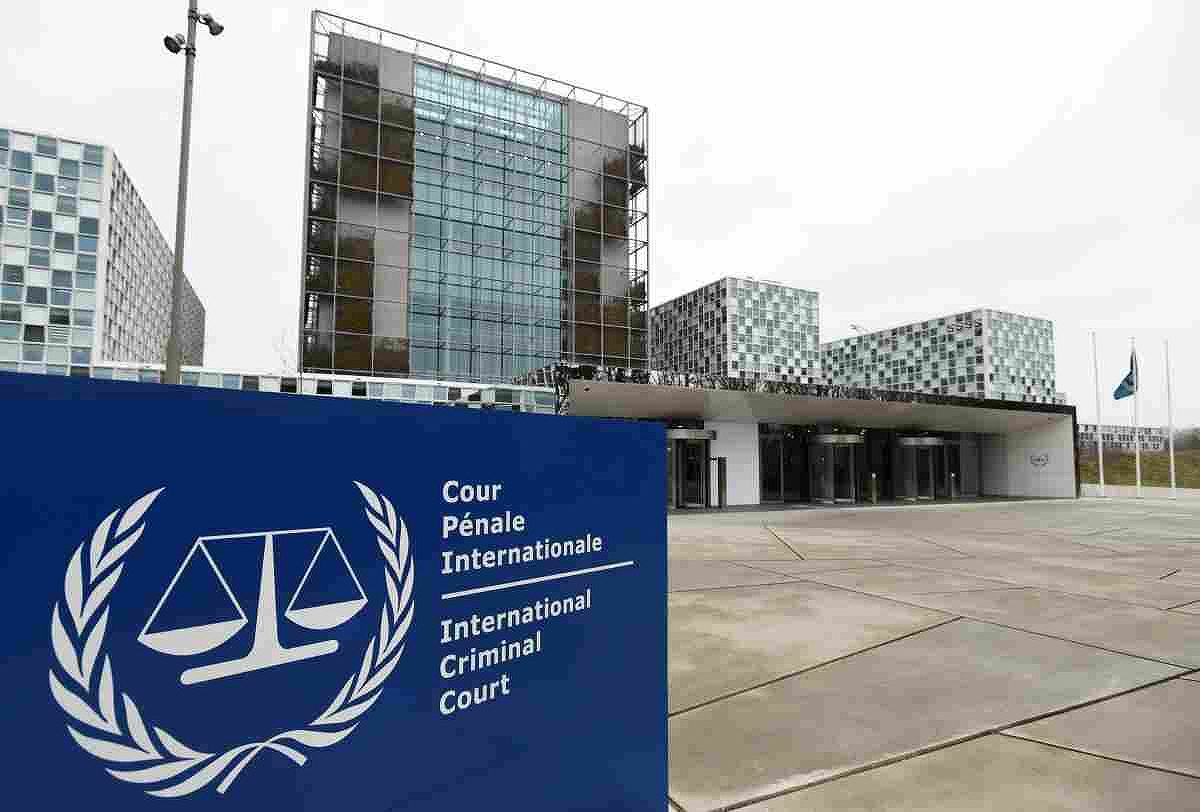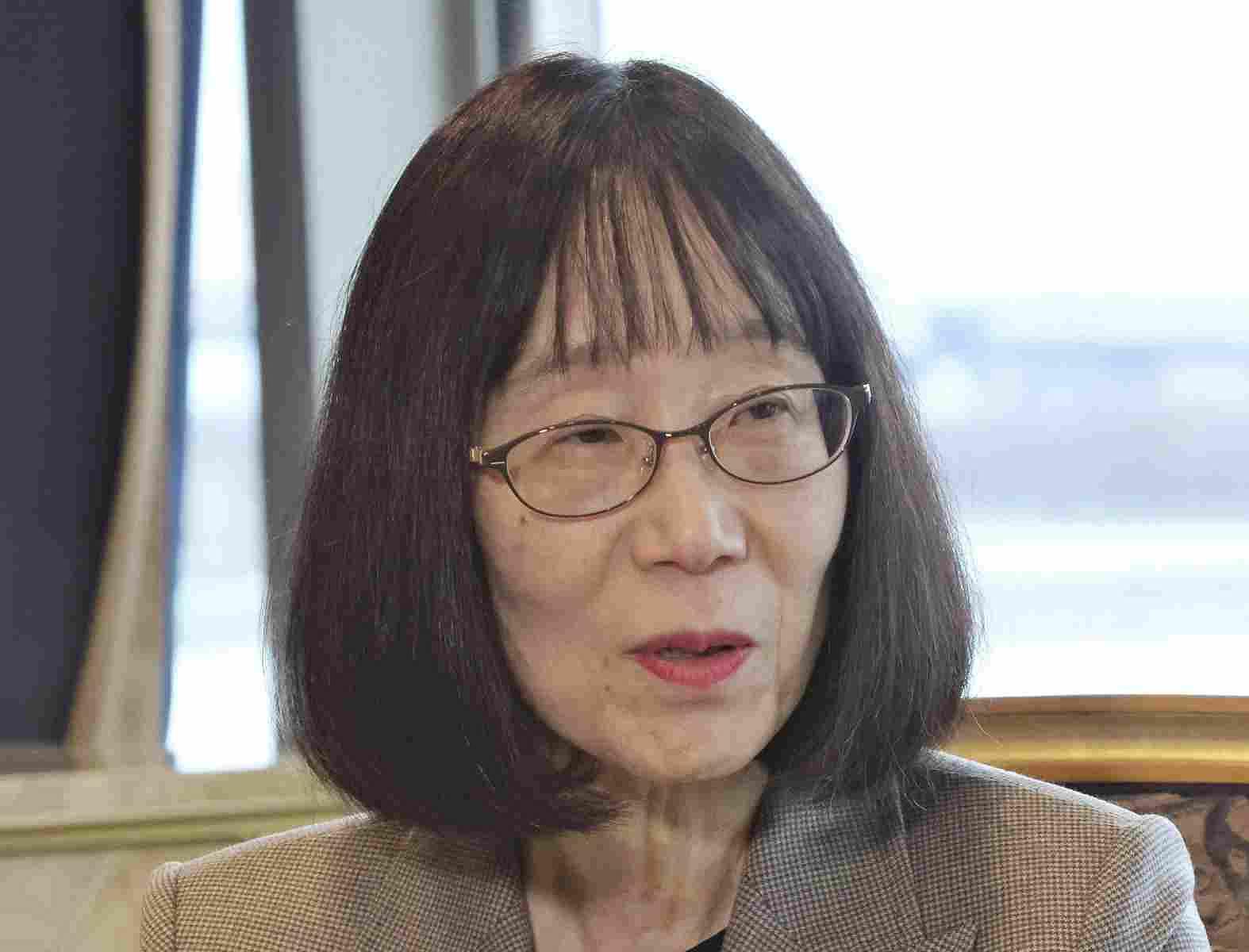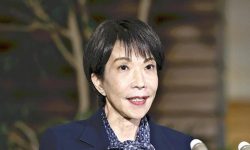Japan’s Call for Rule of Law Contributed to Tomoko Akane’s Election as ICC President; Japan Is Largest Financial Contributor to ICC

The International Criminal Court building is seen in The Hage.
19:28 JST, March 12, 2024
THE HAGUE — Factors that contributed to the recent election of International Criminal Court Judge Tomoko Akane of Japan as president of the Court include Japan’s persistent call for the rule of law and the fact that Japan is the largest financial contributor to the ICC.
“Japan is in a unique position as it is not in Europe or Africa, where many member countries of the ICC are lo-cated. Japan has also experienced wars and is capable of providing impartial and fair justice,” Akane, 67, said in an interview with The Yomiuri Shimbun on Sunday.
It would be safe to say that her election as ICC president reflects high expectations of Japan. The Japanese government has been focusing on the rule of law and is the largest financial contributor to the ICC. In 2023, Japan contributed about ¥3.75 billion to the ICC, accounting for about 15% of total contributions by States Parties. Japan also has been cooperating in developing talent in the field of international law and promoting cyber defense. While the United States and China provide large financial contributions to the United Nations, they are not ICC States Parties.
When the election campaign for the ICC presidency unofficially began last autumn, a Canadian judge who first decided to run for the presidency led the race, according to diplomatic sources. However, Akane gained support from the Japanese government and more and more officials came to understand the necessity of a Japanese national becoming the ICC leader.
However, Japan’s personnel contribution to the Court is not enough. The proportion of Japanese ICC judges, prosecutors and officials is far below Japan’s financial contribution ratio. The former ICC presidents were a Canadian, a South Korean, an Argentine, a Nigerian and a Pole. There have been no Japanese who have held the position of chief ICC prosecutor.

Tomoko Akane
“I gathered all my courage to run in the election. I want young Japanese people to follow suit and become leaders of international organizations,” Akane said.
She also emphasized the importance of expediting trial proceedings. Regarding the time spent to issue a ruling, “Currently, it takes an average of seven or eight years, which I think should be halved,” said Akane. Some ICC States Parties have also called for speeding up trial proceedings. “While evidence-based trials are important, it is possible to increase their efficiency. Speeding up trial proceedings holds the key to increasing the number of ICC States Parties,” she added. It is believed that Akane will give priority to expediting trials.
Japan’s global presence
The fact that Akane has become the first Japanese to head the ICC will provide a further boost to the Japanese government putting effort into producing leaders of international organizations.
Given the recent international events such as Russia’s aggression against Ukraine, Foreign Minister Yoko Kamikawa on Monday issued a statement saying, “The role of the ICC has become increasingly important in recent years … The election of Judge Akane as the president … is highly significant.”
The government welcomes the election as it will provide a great opportunity for Japan to increase its presence in the international community. Since the ICC is required to be independent and impartial, its rulings are not affected by ulterior political motives. However, a Japanese national becoming the face of the international judicial organization will help emphasize the rule of law, which Japan places a focus on.
Another reason for the government trying to produce more Japanese leaders of international organizations is that it wants to vie with China. Currently, out of 15 U.N. agencies, one is led by a Japanese national, and one is led by a Chinese national. However in the past, four bodies were led by Chinese people while none were led by a Japanese person. In the future, the competition for leadership is expected to further intensify in international organizations other than the United Nations, such as the ICC.
The government aims to have more officials who are 35 years old or younger from government ministries and agencies work at international organizations through the United Nation’s Junior Professional Officer program, which offers young professionals from various countries an opportunity to acquire experience working at international organizations. By doing so, the government hopes to nurture them as future leader candidates.
Top Articles in World
-

Israeli Ambassador to Japan Speaks about Japan’s Role in the Reconstruction of Gaza
-

Videos Plagiarized, Reposted with False Subtitles Claiming ‘Ryukyu Belongs to China’; Anti-China False Information Also Posted in Japan
-

North Korea Possibly Launches Ballistic Missile
-

Chinese Embassy in Japan Reiterates Call for Chinese People to Refrain from Traveling to Japan; Call Comes in Wake of ¥400 Mil. Robbery
-

Russia: Visa Required for Visiting Graves in Northern Territories, Lifting of Sanctions Also Necessary
JN ACCESS RANKING
-

Japan PM Takaichi’s Cabinet Resigns en Masse
-

Japan Institute to Use Domestic Commercial Optical Lattice Clock to Set Japan Standard Time
-

Israeli Ambassador to Japan Speaks about Japan’s Role in the Reconstruction of Gaza
-

Man Infected with Measles Reportedly Dined at Restaurant in Tokyo Station
-

Videos Plagiarized, Reposted with False Subtitles Claiming ‘Ryukyu Belongs to China’; Anti-China False Information Also Posted in Japan
























